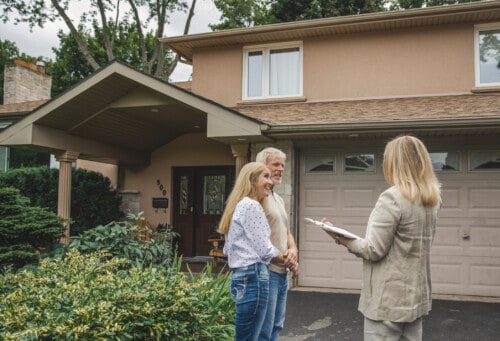Whether you’re a real estate agent or a potential buyer or seller, understanding the intricacies of the home inspection process is crucial. A home inspection serves as a vital step in the home buying or selling journey. It ensures transparency and peace of mind for all parties involved. But what exactly does a home inspection entail? Read on to learn everything you need to know about home inspections.
What are home inspections?
A home inspection is a comprehensive examination of a property’s condition conducted by a professional. It aims to evaluate the home’s structural integrity, systems, and major components, uncovering any existing or potential issues. The process provides valuable insights into the property’s overall condition. It also helps buyers make informed decisions while helping sellers identify areas that may require attention before listing their home.
Home inspections play a pivotal role in real estate transactions. For buyers, a thorough inspection can unveil hidden defects, safety hazards, or costly repairs that might not be apparent during a simple walkthrough. Armed with this information, buyers can negotiate repairs, request concessions, or even reconsider their purchase if the inspection reveals significant issues.
For sellers, a pre-listing home inspection can be equally advantageous. By identifying and addressing potential problems beforehand, sellers can make necessary repairs or disclose issues up front, which can build trust with potential buyers. A well-maintained and inspected property can also command a higher sale price and ultimately attract more confident buyers.
How long do home inspections take?
One common question asked by real estate agents and clients alike is, “How long does a home inspection take?” The duration of a home inspection can vary depending on several factors, including the size, age, and condition of the property. On average, a typical home inspection takes around 2-3 hours to complete. However, it’s important to remember that this timeframe can differ vastly depending on the complexity of the property.
So, what happens during that time? The home inspector meticulously examines the interior and exterior of the property. They pay special attention to the roof, foundation, electrical systems, plumbing, and HVAC. They may also assess the property’s overall safety, check for potential pests, and evaluate the condition of appliances included in the sale. Afterward, they will provide a detailed report outlining their findings.
Tips for a Smooth Home Inspection
A vital role real estate agents play is that of facilitating a smooth home inspection process for clients. Here are a few tips to ensure a successful inspection for all parties involved:
- Educate your clients: Inform your clients about the importance of a home inspection early in the buying or selling process. Explain how it can protect their interests and provide valuable insights into the property’s condition.
- Recommend reputable home inspectors: Maintain a list of trusted and experienced home inspectors in your network. Providing your clients with reliable options can help them make an informed decision when selecting an inspector.
- Encourage attendance: Encourage clients to be present during the inspection. This allows them to ask questions, gain a better understanding of the property’s condition, and discuss any concerns directly with the inspector.
- Prepare the property: Advise sellers to prepare their property for inspection by ensuring access to all areas, clearing away clutter, and making any necessary repairs or maintenance.
Manage expectations: Set realistic expectations for your clients regarding the purpose and limitations of a home inspection. Remind them that minor issues are common. They can be addressed through negotiation, while major concerns may require further evaluation or consideration.
What Your Inspection Might Not Reveal
While home inspections are a crucial step in the real estate process, it’s important to remember that they have limitations. There are certain aspects that a standard home inspection might not uncover. Being aware of these limitations can help real estate agents set realistic expectations for their clients and guide them through the buying or selling journey more effectively.
- Hidden issues: A home inspector’s examination is limited to what is visible and accessible. They cannot see behind walls, under flooring, or within closed-off spaces. Hidden issues such as plumbing leaks, electrical problems or structural deficiencies may go unnoticed during a standard expectation.
- Environmental concerns: Home inspections typically focus on the property’s structure, systems, and components. This meaning they may not address specific environmental concerns like asbestos, mold, or radon. These issues require more specialized testing.
- Future predictions: Home inspectors evaluate the property’s current condition but cannot predict future issues or anticipate how the property’s components will perform over time. While a roof may appear sound during the inspection, it might develop leaks or require repairs in the future. Educating clients about the need for ongoing maintenance and regular inspections after purchasing a property can help manage their long-term expectations.
- Cosmetic concerns: Home inspections primarily focus on the functionality and safety of the property, rather than its aesthetics. Issues related to paint, flooring, or cosmetic finishes are generally not included in the inspection report unless they pose a safety hazard.
- Pest infestations: While home inspectors may notice visible signs of pests during their examination, they are not pest control experts. Encourage clients to consider additional inspections by a pest control professional for these issues.
Demystifying a home’s inspection process is essential for real estate agents to guide their clients through a successful transaction. Remember, a well-informed client is more likely to make confident decisions, ensuring a smooth experience for everyone involved.
Become a Real Estate Expert with Colibri Real Estate
If you think you have what it takes to become a licensed real estate agent, Colibri Real Estate School can help you kickstart your career. With pre-licensing education, exam prep, and post-licensing continuing education opportunities, you’ll be able to learn from local experts, enjoy flexible learning options, and amplify your career confidence in the world of real estate. Contact us today to learn more and get started.




